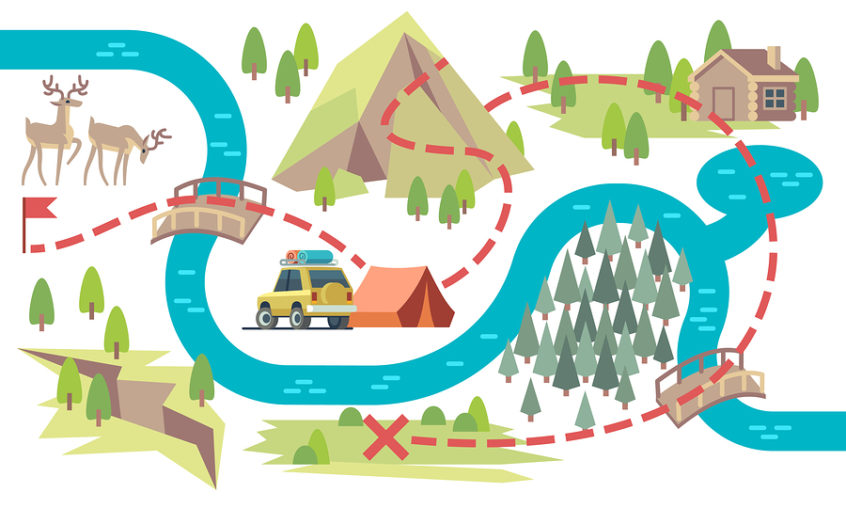Have you ever gone to a website, hunted around for five minutes or better and still not been able to locate the answer to your question?
I gave away ten minutes of my life last week to a resort I am planning to go to this summer. I already made the reservation, but I wanted to learn a little more about what it had to offer. I was looking for a map of the local trails and a map of the trails on their property. I also wanted to know what items I could rent at the location. As I typed, I was still considering canceling my reservation and going to different place. Why? Because earlier I found a different, more expensive resort where I could find the maps I wanted and answers to all of my questions right on their website.
Do you think I cared at this point that it would cost a little more? No, I didn’t. I had already made a judgment about the two businesses and how they do business.
The resort that didn’t have these important details on their site made me feel like I wasn’t that important for them to have as a customer. Why else would they not have all of the details I needed on this website? Then, I started to question all of the other things they skipped over when dealing with the customer.
Can you see what they have done by not having the answers to my questions? They have brought doubt into my purchase. In business you never want to bring doubt and second guessing into the conversation.
The resort that did have the details and information I wanted made me feel confident that they were in tune with their business and their customer. They work in hospitality and are going to provide an amazing vacation place to stay. As you can see, I’ve already moved my reservation to them.
Don’t lose business by not answering the questions people are asking.
Digital marketing professionals will all tell you that you don’t want to have too much content on your home page. It’s true, a really good website is concise and will also not have too many pages either.
Top 3 Ways to Make Sure Your Website Isn’t Losing You Customers by Not Answering Their Questions
- Have a FAQ (Frequently Asked Questions) page and include a search on that page
- List out every question you can think of that your customers ask you and then answer those in detail. Not those two word answers.
- Add more details after the fold of inside webpages that need more details.
- After the fold, means where people would have to start scrolling to see more information.
- Make sure to test how it looks on both your computer and mobile phone, it will look different on each platform.
- Add a chat box to your website and plan for your staff to answer the questions
I know, you’re now thinking, “When in the world do I have time to do all of this?” You do. Take one topic a week. Maybe two pages a month. Take five FAQ questions at a time. As new questions emerge, add them to the page.
My example is one of many I could share with you. People’s expectations of websites have changed. They believe that they should not have to call you to get the answers they’re looking for. Those answers should be on your website. Using a phone to call and talk to someone is at an all-time low right now. It’s actually highly avoided by a large segment of the population and that number is growing daily.
Remember your website is one of the main reflections of your business. So, treat your customers like the amazing people they are and as valuable assets to your business. Treat them with respect, understanding, and support.
Websites don’t have to be complicated and hard to deal with, they do have to do their job right and support your business.
– JoyGenea
